China-Brazil think tank dialogue held on global development, governance
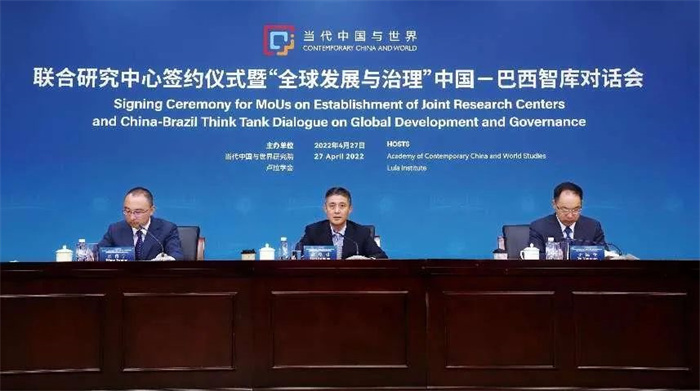
The China-Brazil Think Tank Dialogue on Global Development and Governance, co-hosted by the Academy of Contemporary China and World Studies (ACCWS) affiliated with China International Communications Group (CICG) and the Lula Institute in Brazil, was held both online and in person on April 27.
Brazil's former Foreign Affairs Minister Celso Amorim and CICG Vice President and Editor-in-Chief Gao Anming addressed the event. ACCWS President Yu Yunquan, Lula Institute Director Marcio Pochmann, and a dozen experts and scholars from Chinese and Brazilian think tanks shared their insights into global sustainable development and China-Brazil cooperation.
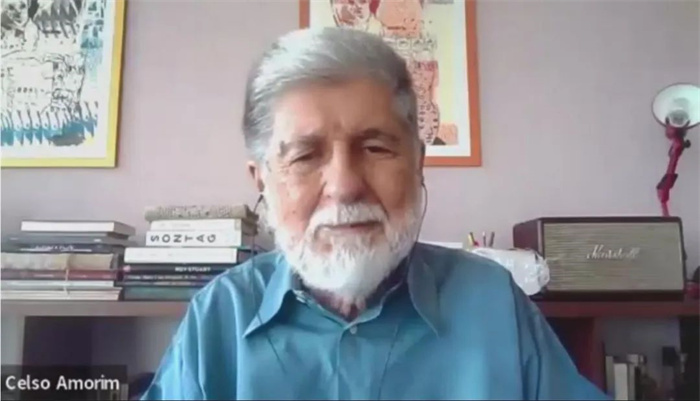
Celso Amorimemphasized the broad cooperation space between China and Brazil in fields of science and technology, economy, culture, biodiversity, COVID-19 response, and global multilateral mechanisms including the BRICS mechanism. He noted that think tanks in the two countries should boost exchanges and cooperation for the benefit of the two peoples.
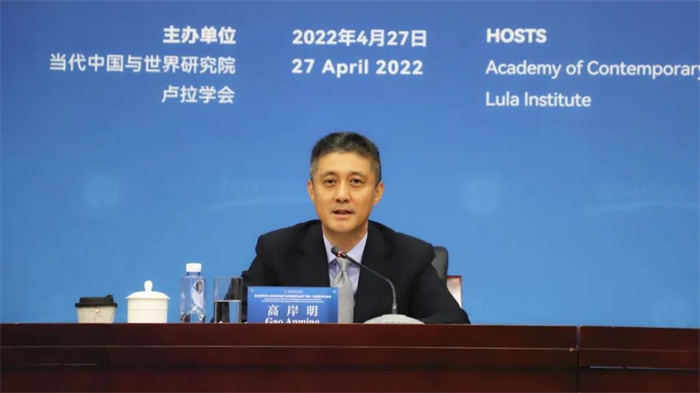
Gao Anming underlined that China and Brazil should deepen their comprehensive strategic partnership to improve people's livelihood through cooperative development, facilitate economic growth through sci-tech innovation, address climate change through green transformation, and strengthen global governance through South-South cooperation. He added that CICG will play its due part in facilitating the process.
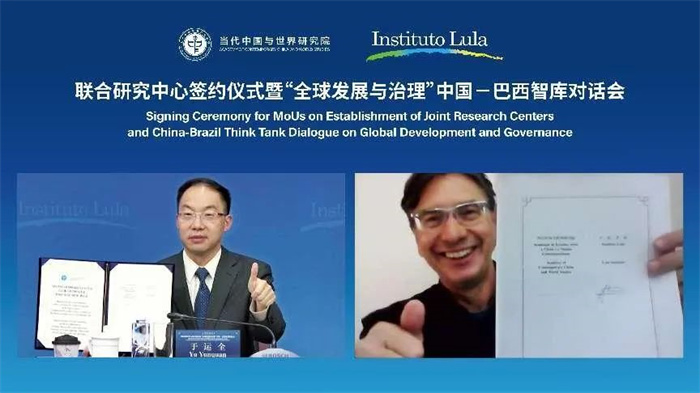
During the dialogue, Yu Yunquan and Marcio Pochmann signed memorandums of understanding on establishing the joint research center of contemporary China and the world and launching a knowledge-sharing program.
Yu stressed that the ACCWS and the Lula Institute will continue to drive forward the China-Brazil Think Tank Dialogue on Global Development and Governance. He added that by conducting innovative joint research, pooling their respective resources and participating in multilateral think tank activities, the platform is expected to explore effective solutions for accelerating the implementation of the U.N. 2030 Agenda for Sustainable Development and promoting common development of the world.
Pochmann pointed out that the Lula Institute and the ACCWS will jointly carry out research and seek solutions to common challenges facing the two countries with regards to sustainable development as well as issues of shared interest such as economic growth, wealth inequality, social equity and sci-tech innovation.
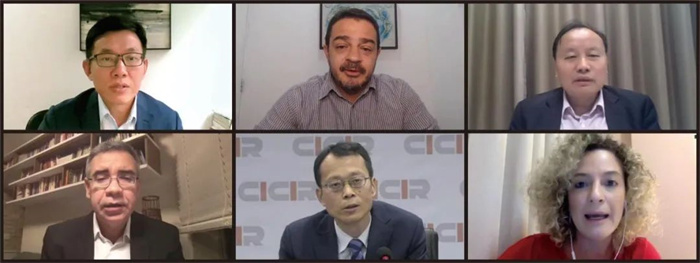
Looking forward, the ACCWS and the Lula Institute will, based on their joint research center, hold exchanges on a range of topics from economic recovery, poverty reduction, climate change, and Belt and Road collaboration to South-South cooperation.

